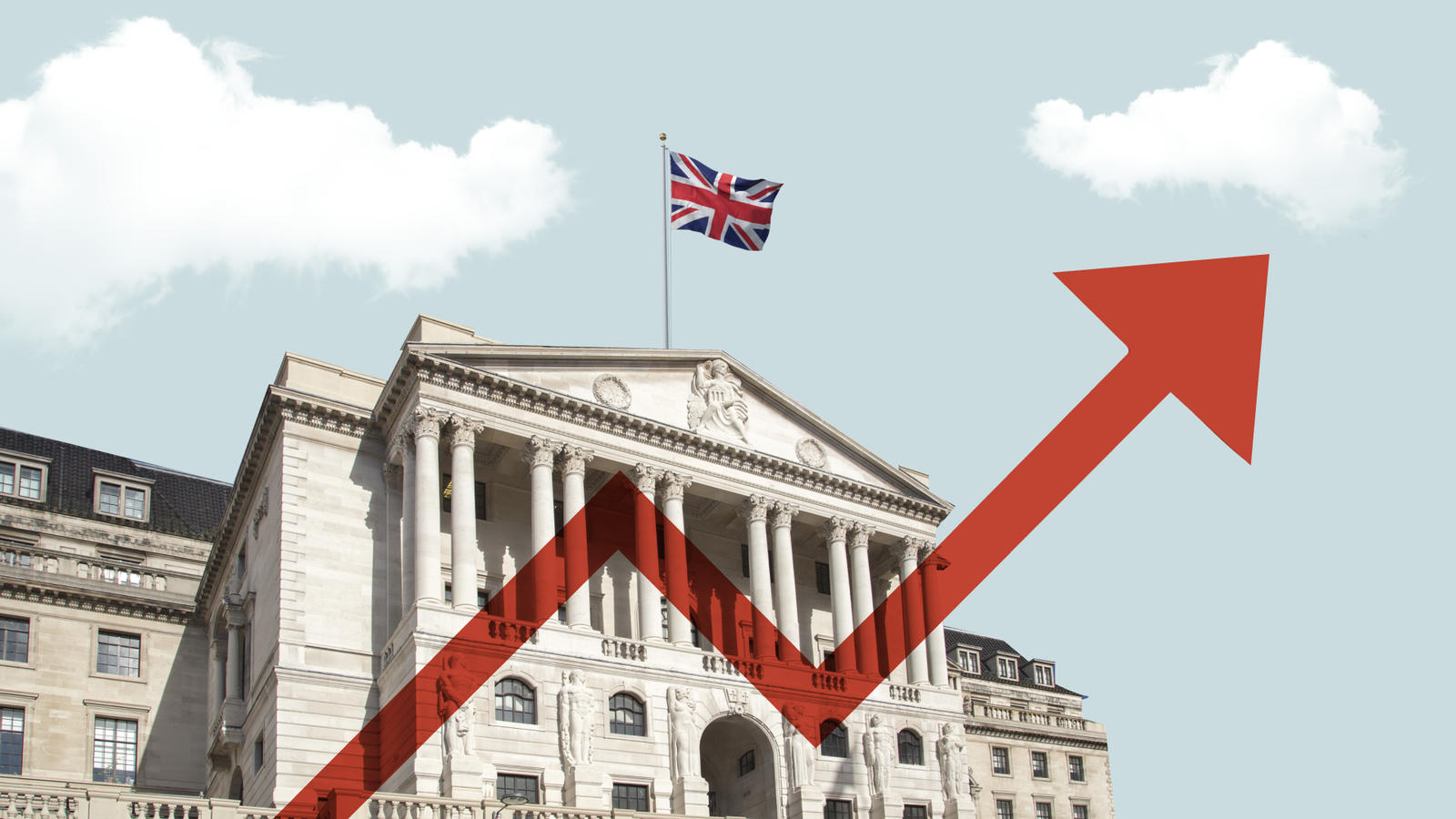BoE raises key rate to 4.5% signaling more hikes
Majority of Monetary Policy Committee votes for a rate hike, with two members voting against it.

Bank of England increases benchmark lending rate to 4.5%, the highest level since 2008.
BoE warns that further rate hikes may be necessary if inflationary pressures persist.
Majority of the Monetary Policy Committee vote for the rate hike, citing the resilience of the economy and added price pressures.
BoE raises growth projections, predicting a 2.25% bigger real economy by mid-2026 than previously forecasted in February.
The Bank of England (BoE) increased its benchmark bank rate by 25 basis points to 4.5%. This decision aligns with market expectations and is the twelfth consecutive rate increase. The move was made in response to double-digit inflation, and this rate increase is the highest since 2008. The BoE has revised its inflation forecast for Q4 2023 from 3.9% to 5.1% and aims to reach its 2% target by late 2024. While the economy is predicted to slow down in Q1 and Q2, it is expected to recover and achieve a growth rate of 0.25% for 2023, exceeding the previous forecast of a 0.5% contraction. The measures outlined in the government's March budget are predicted to add 0.5% to GDP. However, the BoE will continue to monitor indicators of persistent inflationary pressures, including labour market conditions, wage growth, and services price inflation, and may need to further tighten monetary policy if necessary.
BoE raises benchmark lending rate to 4.5% amid inflationary pressures
The Bank of England (BoE) has announced an increase in its benchmark lending rate to 4.5%, marking its highest level since 2008. The bank has warned that additional increases may be necessary if inflationary pressures continue. While two of the nine-member Monetary Policy Committee voted for no change, the majority of the panel determined that action was required given the resilience of the economy and resulting price pressures. The BoE also adjusted its growth projections, eliminating a previously forecasted recession and predicting that the real economy will be 2.25% larger by mid-2026 than previously anticipated.
Money market traders predict further tightening as inflation remains high
The decision has led to an increase in money market traders’ bets on further BoE tightening, with almost 50 basis points of additional tightening already priced in, which would take the key rate just below 5% by September. The BoE predicts that inflation will fall to 5.1% by the end of 2023, meeting Prime Minister Rishi Sunak’s pledge to cut inflation in half this year. However, higher mortgage costs are driving up rental prices, with landlords demanding higher sums from tenants and some opting to sell their properties due to rising expenses.
The Labour party has criticized Sunak, blaming him for higher mortgage costs due to his perceived failure to boost economic growth post-pandemic. The cost-of-living crisis is expected to become a significant issue in the upcoming general election, which is widely anticipated to take place next year. The BoE's decision to raise interest rates reflects the challenges facing the UK economy as it recovers from the pandemic, with the central bank taking a cautious approach to prevent inflation from spiraling out of control.
The Bank of England's decision to raise interest rates is the quickest round of increases in 40 years, expected to have a greater impact on households and businesses in the coming months. The bank is grappling with high double-digit inflation, which is still stronger than the forces affecting the US and Eurozone. If there is more evidence of persistent inflationary pressures, the bank stated that it would need to tighten monetary policy further. This language was unchanged from the previous meeting held in March, which was interpreted as opening the door to a pause in the hiking cycle.
Economic growth and inflation exceed expectations
Inflation, economic growth, and surveys about the labor market all exceeded expectations since March, leading investors to price in more rate hikes through the summer. Nevertheless, the US Federal Reserve indicated the possibility of a pause. The BOE raised both its growth and inflation forecasts, estimating a smaller increase in unemployment than previously predicted in February. Officials expect Chancellor of the Exchequer Jeremy Hunt's budget measures outlined in March to add 0.5% to gross domestic product, surpassing the 0.3% expected in February.
While the economy is expected to stagnate in the first and second quarters of this year due to strikes and the bank holiday for King Charles III's coronation, it is projected to grow around 0.2% per quarter on an underlying basis. This improvement is primarily due to lower energy prices, along with fiscal stimulus and lower unemployment that boosted consumer confidence and spending. Officials are optimistic that the UK will be spared the worst of the banking crisis affecting the US, where authorities arranged a hasty buyout for First Republic Bancorp and rescue for Silicon Valley Bank. The BOE's forecasts anticipate that the tremors in the US banking sector will shave 0.25% of US growth.
The BOE's intervention with the UK unit of SVB did not appear to influence Thursday's rate decision. The bank stated that the impact of recent global banking sector developments on domestic credit conditions and UK GDP was expected to be small. However, higher food price inflation is offsetting some of the optimism, and the BOE emphasized the unprecedented nature of the trade shock.









